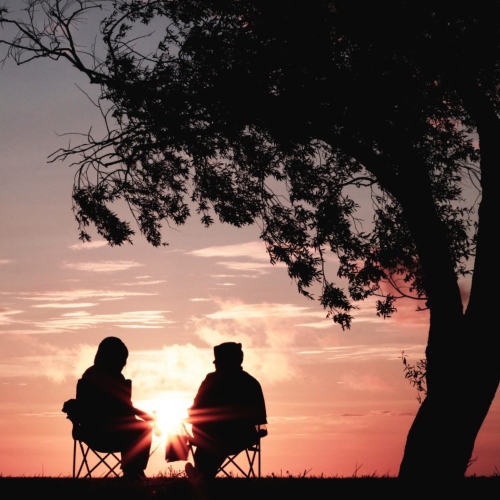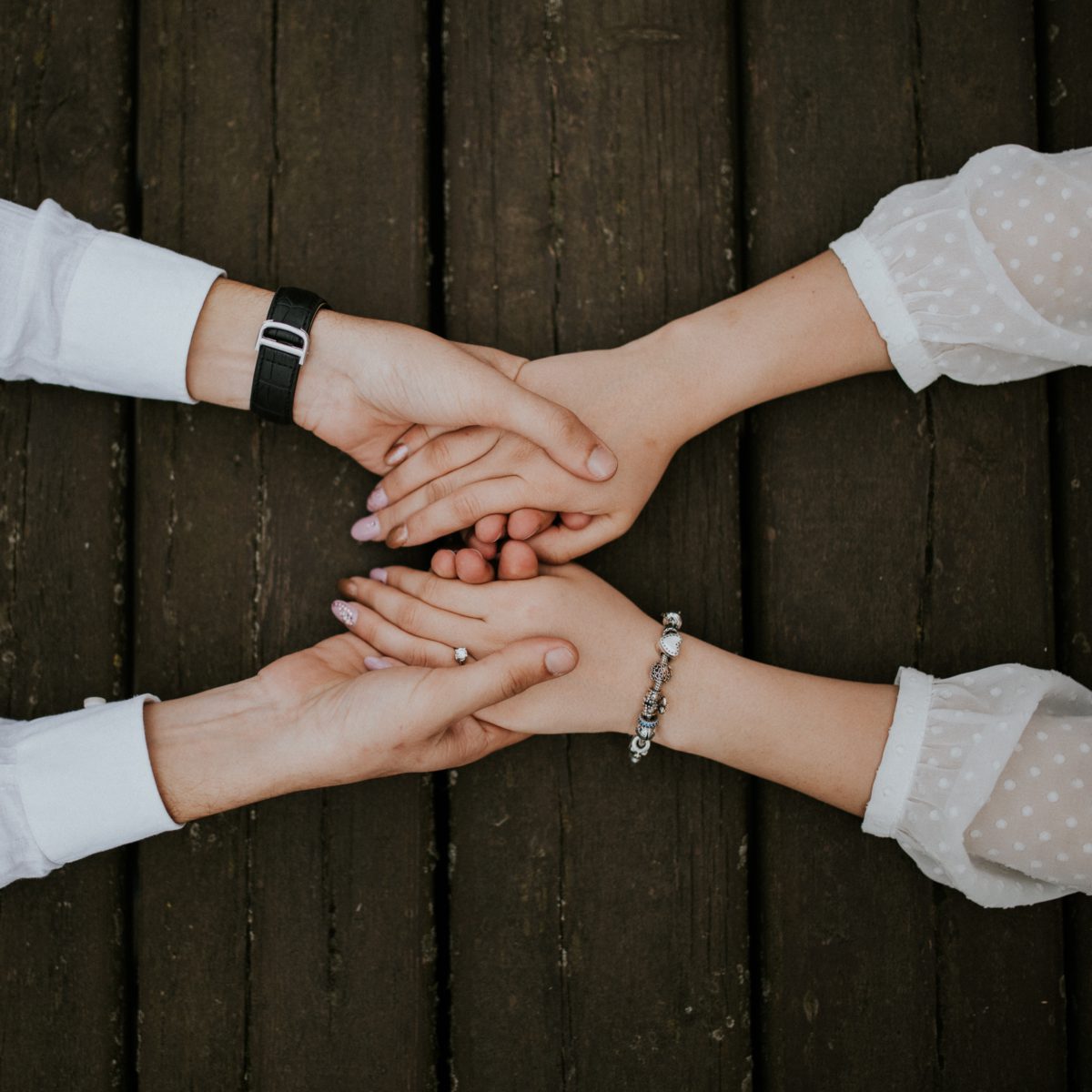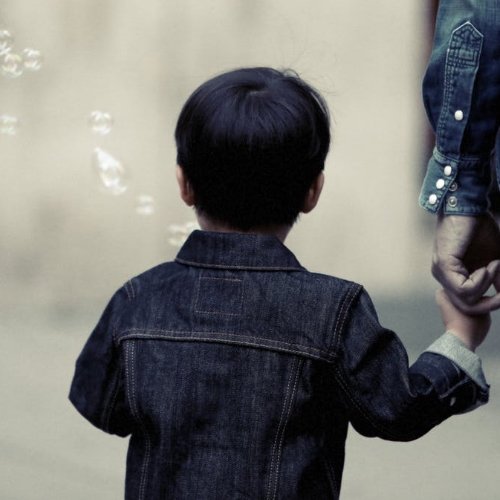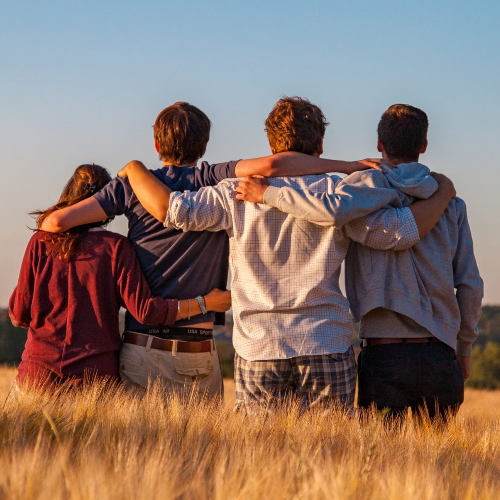How To Tell Your Family and Friends You Have Cancer
When a patient is diagnosed with cancer, one of the most important things they can do soon after is gather their support system. Having people supporting you and in your corner is a crucial part of recovery. Before they can truly help you, they have to know what’s going on.
This begs the question: “How in the world do I tell the people I love that I have cancer?”
Keep reading to learn how other cancer survivors went about breaking the news and the emotions that go along with the diagnosis.
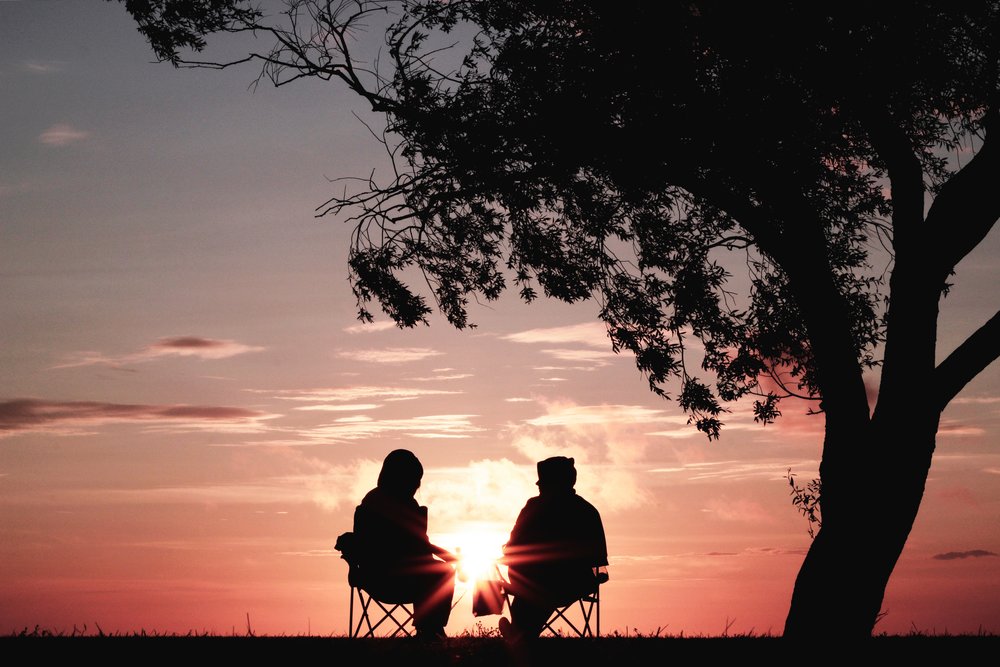
- Breaking the News to Family
- Hugo Toovey (Testicular Cancer, Non-seminoma, Stage 2B)
- Rach DiMare (Breast Cancer, Invasive Ductal Carcinoma, Stage 2, Triple Positive)
- Mikael Habekost (Testicular Cancer, Non-Seminoma, Stage 1)
- Brittany Wagner (Cervical Cancer, Squamous Cell Carcinoma, Stage 4B)
- Caitlin James (Breast Cancer, Invasive Ductal Carcinoma, Stage 2B, ER/PR+)
- Breaking the News to Kids
- Cancer and Support Articles
Breaking the News to Family
Hugo Toovey (Testicular Cancer, Non-seminoma, Stage 2B)
Telling his family is what made his diagnosis real to him.
It wasn’t until I broke it to my parents and told people that I kind of realized how serious it was.
Saying, ‘I have cancer,’ and hearing other people’s reactions made me realize this was more serious than I initially thought.
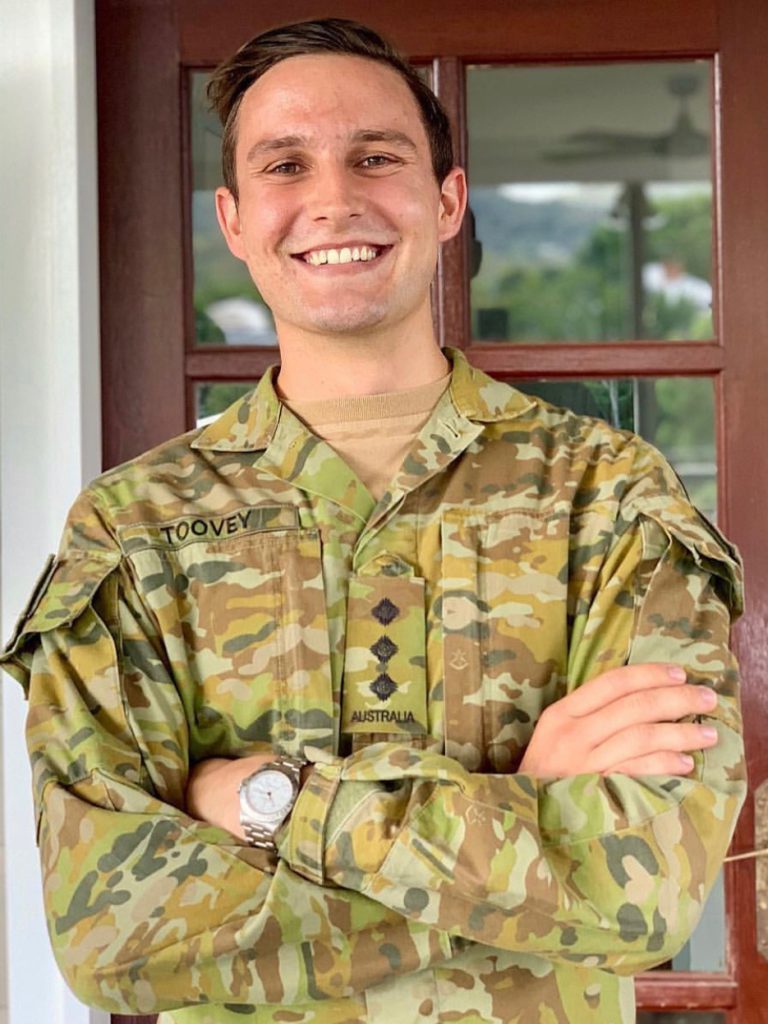

Rach DiMare (Breast Cancer, Invasive Ductal Carcinoma, Stage 2, Triple Positive)
“I immediately called my husband, and I literally said, ‘Hey, I just got the results.’ I think he knew. I think he probably could tell by my tone, my voice – I’m not sure.
I called my parents and pretty much just told them. At first my dad was confused. He said, ‘Are you sure that’s what you heard?’ I told him, ‘I’m pretty sure that’s what she said because she’s having me schedule to see an oncologist and a surgeon.’ So my dad said he’d my mom, pick her up from work immediately, and come see me.
I think it was harder for my in-laws, I’m also close with them, because they weren’t in town. They were in Florida. I let my husband handle it. They were very shaken up with the news. But there was no way to dance around the results.”
Mikael Habekost (Testicular Cancer, Non-Seminoma, Stage 1)
“My boyfriend knew that I was going through this. My parents were told a few days before that I was going through this stage of finding out whether or not I had cancer, and they were actually the only ones knowing that I was going through this. But then the day after, I collected like five very close friends at a bar, and we sat down and had a beer.
They actually thought that my boyfriend and I were going to announce that we were getting married, but that was not the case.”
I told them that I got cancer and at that moment I wanted them to be involved, but aside from that, I would like to get over the surgery and such before I started telling people about my situation. A few days later, I told the rest of my family, like my close family, what I was going through.”

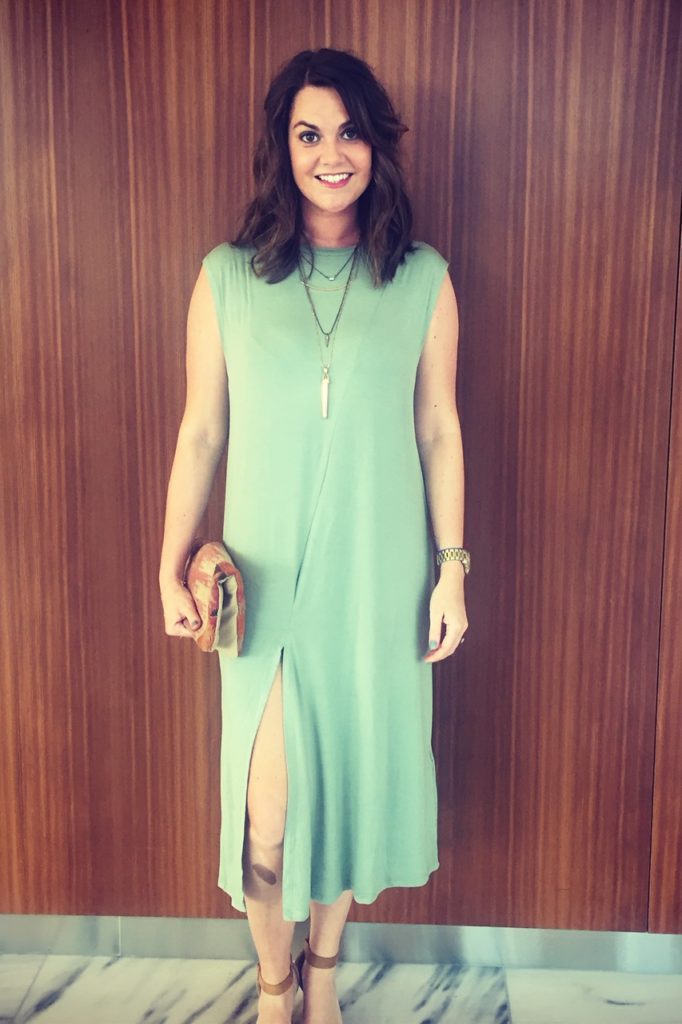
Brittany Wagner (Cervical Cancer, Squamous Cell Carcinoma, Stage 4B)
I was with my husband. I remember not being able to call and tell my mom. I asked my husband to do that because they admitted me to the hospital that night because I was so badly in need of a blood transfusion.
I broke the news to my family and friends. It was hard. I mean, to my parents like I said, my husband is the one that originally told them of the diagnosis.
I called my best friend, who’s really more like a sister to me, honestly. I’ve known her since I was eight. I told her.
At that time I was basically like, I assumed it would be a slow stage of cancer. I just thought, ‘Okay, I have this and we’re gonna get through this.’ I just remember I was more concerned about their feelings and telling them these things then I was about myself at that time.
When I had to tell my parents about the staging, that was hands down the hardest thing. Having to tell them that I was stage 4B or whatever, that night I think I had, I don’t know, a crazy, large glass of gin to get through it, telling them.
I just remember saying, ‘It’s really not good you guys. I’m going to do the best I can, but it’s really not good.’ I found having to tell other people to be literally the hardest thing about this. I find it so hard to have to share with my loved ones.”
Caitlin James (Breast Cancer, Invasive Ductal Carcinoma, Stage 2B, ER/PR+)
“I had my mom tell my dad. It’s not an easy thing to do. I told my husband immediately.
We were just dating at the time. I called him and told him what was happening. He left work and came home.
With everyone else, I just let my mom tell them because it’s not an easy thing to do. It really helped to have her as a buffer.
Cancer is a very emotionally charged life event that some people have to go through. It’s really painful to see your loved ones worry about it.”
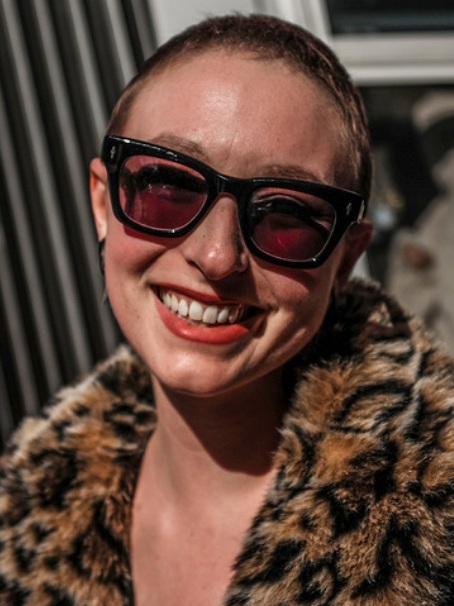
Breaking the News to Kids
If you are a parent with cancer, breaking the news to your kids can be one of the more difficult things to navigate. How much do you tell them? How do you tell them in an age-appropriate way?
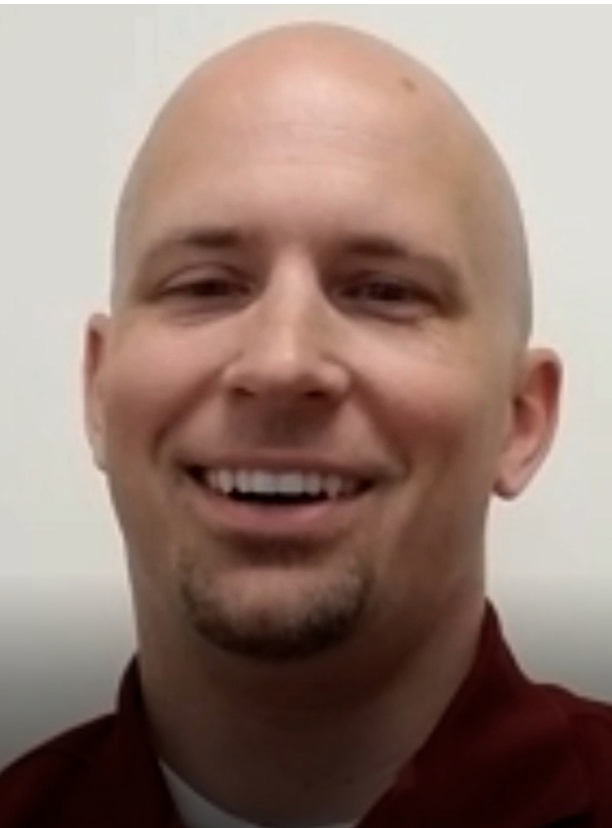
Patrick Mulick (Non-Hodgkin’s Lymphoma, Primary Mediastinal, Stage 2)
We did it right. We spent an evening when they got home from school all together. We talked them through what cancer is – the spectrum of it. We explained to them what I had been told that I had.
We didn’t promise them anything. We just said, ‘We have some very good doctors who are going to be working with dad.’
Because we were emotionally calm, they were able to stay pretty calm.
Plus, we told them after we talked, we were going to go out to dinner and have some ice cream. They were fine once it was over.
Throughout the entire process, I don’t think one of my kids shed a tear, and that’s okay. I don’t think they fully understood the gravity of what I was going through.
When they’re older and better able to understand the details of it, I’ll explain it to them then. They knew as much as they needed to know. They took it all very well.”
Kevin Reamey (Kidney Cancer, Transitional Cell Carcinoma, Invasive)
If you have kids, you surely realize by now that you can’t bluff. You think you’re kidding them but you’re not.
They’re really astute people. They get astuter as they get older.
So I just concentrated on saying look here’s what happened. I was diagnosed with this. This is the scan, here’s what it looks like, it looks like it’s cancer.
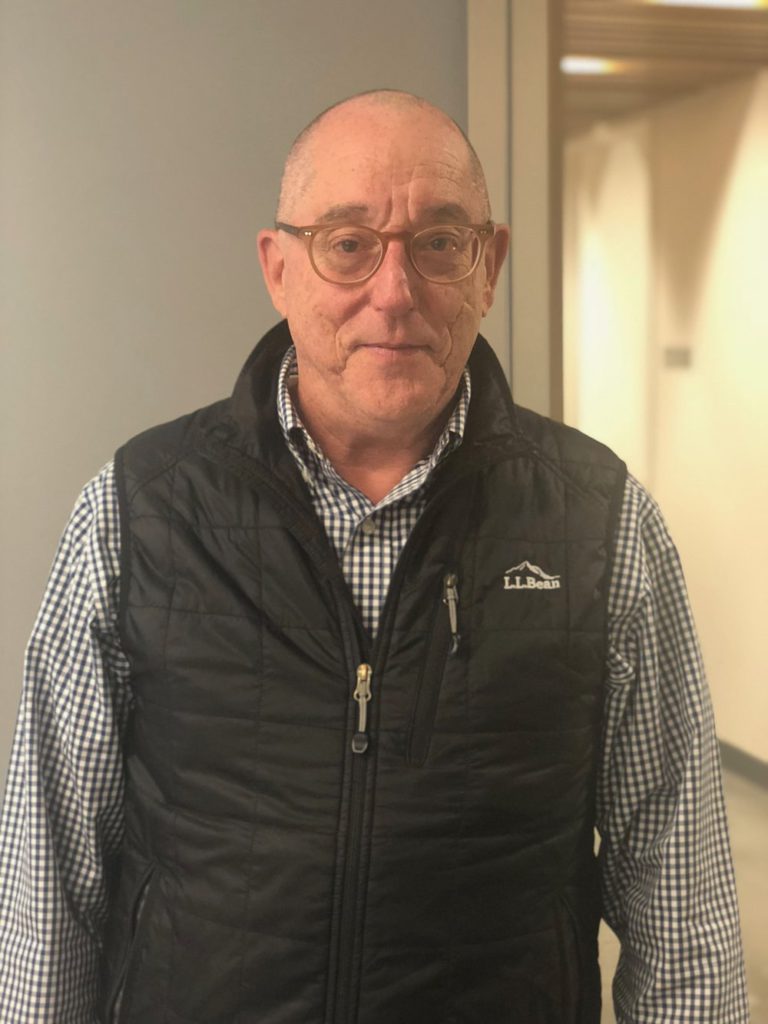
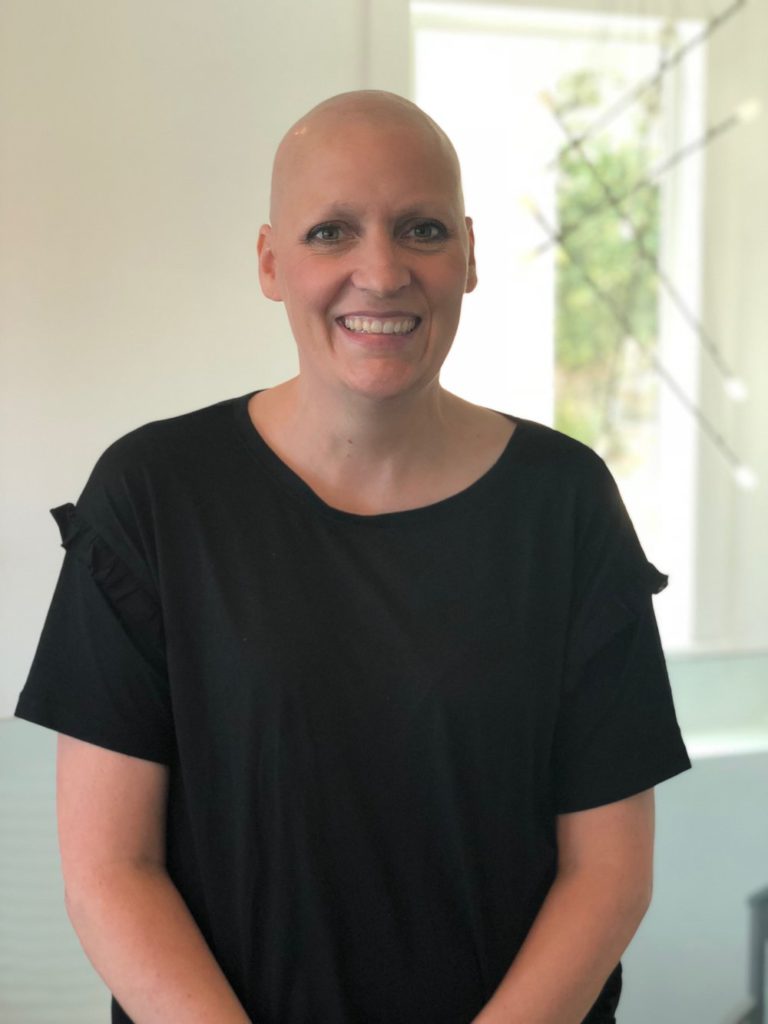
Jodi Smith (Ovarian Cancer, Epithelial, Stage 4)
I would definitely say to be honest with your kids. I think they are a lot more scared when they know something’s wrong but they don’t know what it is.
Even though my kids were scared of the ‘C’ word, cancer, they would go to school and they would come home after school and say, ‘Somebody said you can die from cancer. Can you die from cancer?’
I said, ‘Yes, you can die from cancer but mom is not there. I’m doing treatments and it’s working, I’m getting better right now. If it ever got bad and I was going to die, I would talk to you about that, I would tell you.’
Breaking the news can be especially difficult if you’ve relapsed or gotten a secondary cancer. Hugo beat testicular cancer, celebrated five years of remission, and he developed a secondary, unrelated case of colon cancer.
Hugo Toovey (Colon Cancer, Related to Ulcerative Colitis, Stage 1)
“One of the hardest things I’ve done was calling my family – my parents, my sister and my twin brother. Having to say, “I have bowel cancer,” to my family while fighting back tears and hearing pain in their voice, you realize that cancer affects far more than just the individual.
I felt like I was causing my family so much more pain because of what I was about to go through. I felt like it wasn’t fair for them just like it wasn’t fair me. It was a difficult moment, and it made it more real.”
No matter what your situation may be, remember that when you break the news to your loved ones, there’s no right way or wrong way to do it. It all depends on your relationship, your comfort zone and you.
Cancer is notorious for taking control of your life; some people take their control back by shaving their heads before their hair falls out. You can take back control by choosing how to tell your loved ones.

